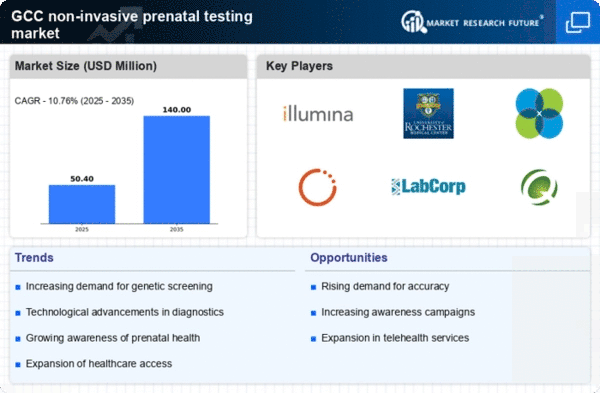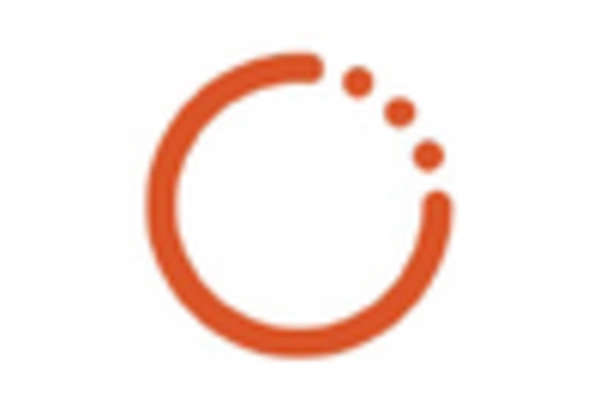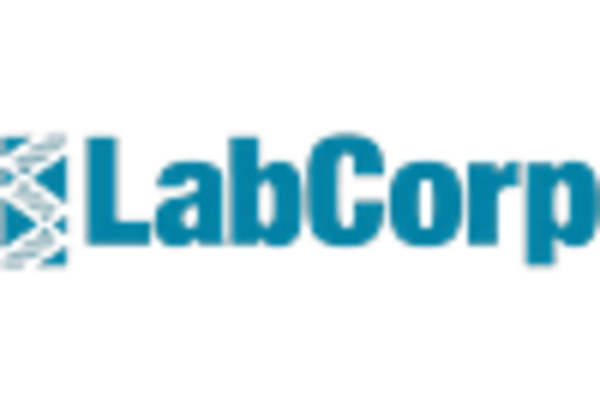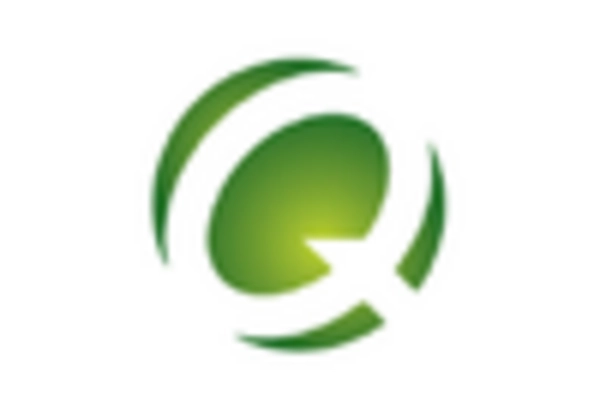Increasing Healthcare Expenditure
The rising healthcare expenditure in the GCC region is a pivotal driver for the non invasive-prenatal-testing market. As governments and private sectors allocate more funds towards healthcare, the accessibility and affordability of advanced medical technologies improve. In 2025, healthcare spending in the GCC is projected to reach approximately $100 billion, reflecting a growth rate of around 5% annually. This increase in funding allows for the integration of innovative prenatal testing solutions, enhancing the quality of maternal care. Furthermore, as healthcare facilities upgrade their services, the demand for non invasive prenatal testing is likely to rise, as it offers a safer alternative to traditional methods. This trend indicates a shift towards preventive healthcare, where early detection of genetic disorders becomes a priority, thereby propelling the non invasive-prenatal-testing market forward.
Government Initiatives and Policies
Government initiatives and policies are instrumental in driving the non invasive-prenatal-testing market. In the GCC, various health authorities are implementing policies that promote the use of advanced prenatal testing methods. These initiatives often include funding for research and development, as well as subsidies for healthcare providers to offer non invasive tests at reduced costs. For instance, the introduction of national health programs aimed at improving maternal health outcomes has led to increased availability of non invasive prenatal testing services. By 2025, it is projected that such government support could enhance market penetration by up to 25%, as more healthcare facilities adopt these technologies. This proactive approach not only improves access to essential services but also encourages public trust in non invasive testing methods.
Rising Birth Rates and Maternal Age
Rising birth rates and an increase in maternal age are contributing factors to the growth of the non invasive-prenatal-testing market. In the GCC, demographic trends indicate that women are choosing to have children later in life, which correlates with a higher risk of genetic disorders. Consequently, there is a heightened demand for reliable prenatal testing options that can provide peace of mind to expectant parents. As of 2025, the birth rate in the region is expected to stabilize around 20 births per 1,000 people, while the average maternal age is projected to rise to 30 years. This demographic shift is likely to drive the adoption of non invasive prenatal tests, as parents seek to mitigate potential health risks associated with advanced maternal age. The market is poised for growth as these trends continue to evolve.
Technological Innovations in Testing
Technological innovations play a crucial role in shaping the non invasive-prenatal-testing market. The introduction of advanced genomic sequencing technologies has significantly improved the accuracy and reliability of prenatal tests. For instance, next-generation sequencing (NGS) has emerged as a leading method, allowing for the analysis of fetal DNA with unprecedented precision. In the GCC, the adoption of such technologies is expected to increase, driven by the demand for non invasive testing methods that minimize risks to both mother and child. As of 2025, the market for NGS in prenatal testing is anticipated to grow by over 20% annually, reflecting the increasing preference for non invasive options. This technological evolution not only enhances diagnostic capabilities but also fosters greater confidence among expectant parents, thereby stimulating market growth.
Cultural Shifts Towards Preventive Healthcare
Cultural shifts towards preventive healthcare are significantly influencing the non invasive-prenatal-testing market. In the GCC, there is a growing recognition of the importance of early detection and intervention in maternal and fetal health. This shift is partly attributed to increased awareness campaigns and educational initiatives that emphasize the benefits of non invasive testing. As a result, more expectant parents are opting for these tests to ensure the health and well-being of their unborn children. The non invasive-prenatal-testing market is likely to benefit from this cultural transformation, as it aligns with the broader trend of prioritizing preventive measures in healthcare. By 2025, it is estimated that the uptake of non invasive prenatal tests could rise by 30%, reflecting a significant change in attitudes towards prenatal care in the region.

















